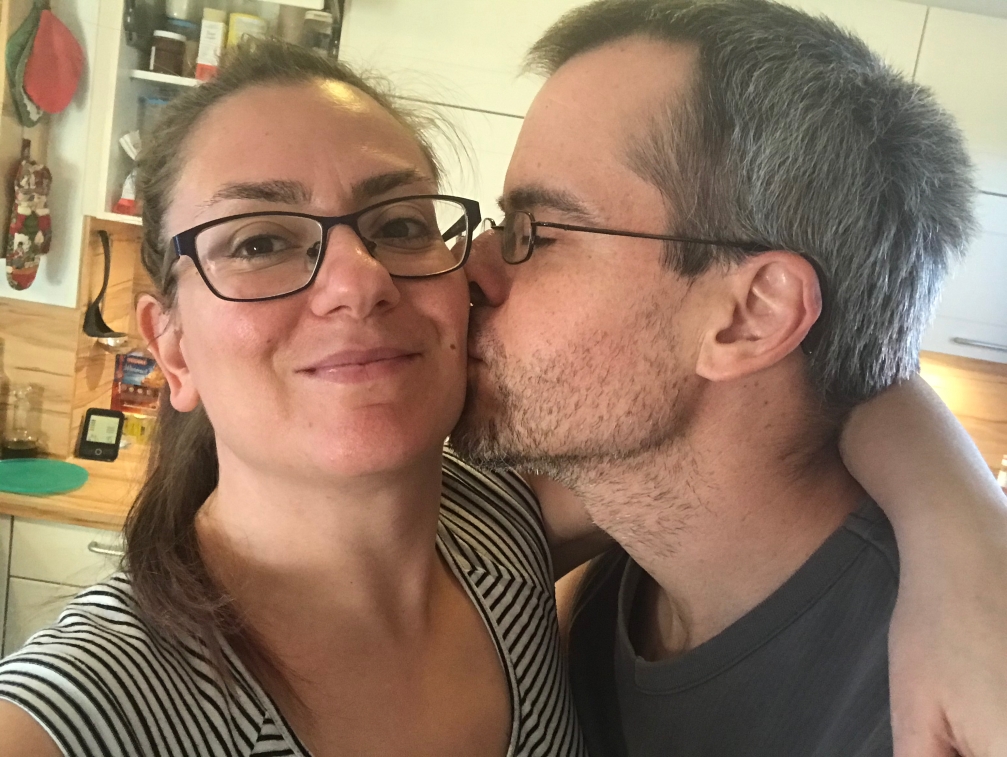“You’ve been emotionally abused,” Dimitra said to me yesterday.
I’ve been in therapy for a year. I’ve solved most of it–binge eating, body dysmorphia, trichotillomania, lack of object constancy; even my Rejection Sensitive Dysphoria has diminished greatly. But this took me by surprise. It hit me like a brick on the face. I asked her to explain.
“Like victims of abuse, you have a warped view of what affection and care is like, so you’re repeating the same motives in new relationships because they are familiar to you. Your norm is to be around people like”– and here she mentioned some names of people close to me. “But you’ve come farther than that,” she concluded. She’s said it in the past: You need to be with people who value you. You’ve invested enough in others, it’s time for them to invest in you. You need people who are capable of showing love and care and affection.
If you’re a normal human, you’ll think all of this is self-evident. But for years, it wasn’t self-evident to me. I’ve learned to live with scraps of affection. I’m constantly picking people who don’t show love, at least not in the conventional way. I’ve had to learn to decipher clues. This, combined with the convictions my sick brain held for decades (“I don’t deserve it anyway,” “I’m disgusting”) is what brought me to today’s state. I’ve been emotionally starved, not only by those individuals in my live who couldn’t show love, but also by my own disorders. By my own self-hating mind.
When I broke down, nearly a year ago, Dimitra was worried sick. She and Christina–my friend who lives close to my home in Athens–coordinated to keep my mom in the loop and reassure her that I was okay, and to support Urban. This was a level of care I didn’t think I’d ever have. It took me by surprise.
“I love you,” Dimitra said to me that night, after the paramedics had given me Lorazepam and made sure my blood pressure wasn’t too high before they left. This killed me. Except my parents, nobody had told me they loved me in over a decade. Even my husband never told me he loved me–although, I suppose even I, in my RSD-addled brain, knew he did.
Someone loves you, I told myself. Your friend loves you. I held on to it for dear life. This healed me more than you know.
A few weeks ago, I was discussing with my best friend about feelings and the such, which invariably means I was throwing sentences at him and he was using the keyboard to grunt, assent, make sarcastic and witty comments, and be all-around delightful, or delightfully grumpy, in the way I know and love about him.
“See, I always thought I was too needy,” I told him. “But I’m not. You always reply to talk about feelings with sarcastic comments, and it’s perfectly fine. It wouldn’t be fine for a needy person.”
It’s true. For my best friend, any talk about my emotional world is like a metaphorical hot potato. Through years of being with those two–I’m including husband–I’ve learned to live with little to no acknowledgement of emotional needs, and even less satisfaction of said needs. Scraps. Bits and pieces. I love them to death, and they give me a lot of the things I need–a feeling of safety, intellectual stimulation, loyalty. They’re the smartest people I’ve ever met. They give good advice. I trust both of them with my life.
And I’m most certainly not needy. I don’t know if these two perceive me as such–and it’s okay if they do; their standards are their standards, and it’s fine–but the mere fact that I’m able to decipher their subtle hints that give a glimpse into their emotions and be there for them for nearly two decades proves once and for all that I. Am. Not. Needy. I’m the opposite of needy, even if I occasionally break down and shout at them. I’m human, after all, and I’ve had my own disorders to deal with. But at the end of the day, I make the effort: I take the time to decipher the hints, I perceive their affection, and I stay. And yes, I’m rewarded for it. These individuals are the uniquest of unique.
But what about affection?
This past year has surprised me in many ways. I’ve come to find there are people–actually, they might be the majority of people–who show affection, not only in that hyper-oblique way you have to think about and decipher (which is what I’ve learned to accept, and which would fly over most people’s head anyway), but in the real, showing emotion, telling you they love you way, hugging you when you cry way. I’d been stuck with the first way for years. This is what Dimitra means: I’ve had to work hard to perceive affection. I’ve had to invest a lot, my brain had to constantly work overtime to convince my subconscious that my husband or my friend actually love me.
Urban would say it’s probably my handicap–the Rejection Sensitive Dysphoria, you see. He’d say I see things as more negative than they are. That I’m exaggerating. Yes, that has very often been the case. But it’s not entirely true, either. I’d even argue that the RSD, combined with the low feeling of self-worth has had the opposite effect. It made me fail to demand what I–and every human, really–deserve: affection, love, and their expression.
Dimitra says I should stick with Urban, now that the nearly two-decades-long struggle has paid off. He’s a case study, she says. The progress he’s made is astounding, developing empathy, acknowledging his shortcomings and working hard to be there in an emotional way his brain doesn’t understand. And he’s the father of my children. We’re a family. This is worth the astounding effort I’ve put into this relationship. But when it comes to others? Her opinion is clear: “It’s not worth the effort if you haven’t developed emotional shields.” You’ve invested enough.
You must have figured out by now that I don’t raise emotional shields. This has a lot of disadvantages, I grant you, but it has one great advantage: I learn. I learn about different types of humans, those who are misunderstood by their peers. I learn to recognise the subtle hints. I learn to love the atypical, the awkward, the weird. Humanity has so much to offer.
And, what’s more, I break. You might think that’s a disadvantage. It surely makes my family’s life hard. But every time I put myself back together again, there’s a breakthrough. My subconscious opens wide and is restructured. Most people’s deeper brain structure is fixed; their core beliefs, and with them the misconceptions and the sources of hurt will remain, undetected, unaltered, for ever. Not me: I open myself up to new misconceptions, new hurt, new trauma, but new discoveries, too.
Still, Dimitra is right: I need to learn how to protect myself a little more.

“That, my friends, is a great book.” –Rebecca Hefner, author



